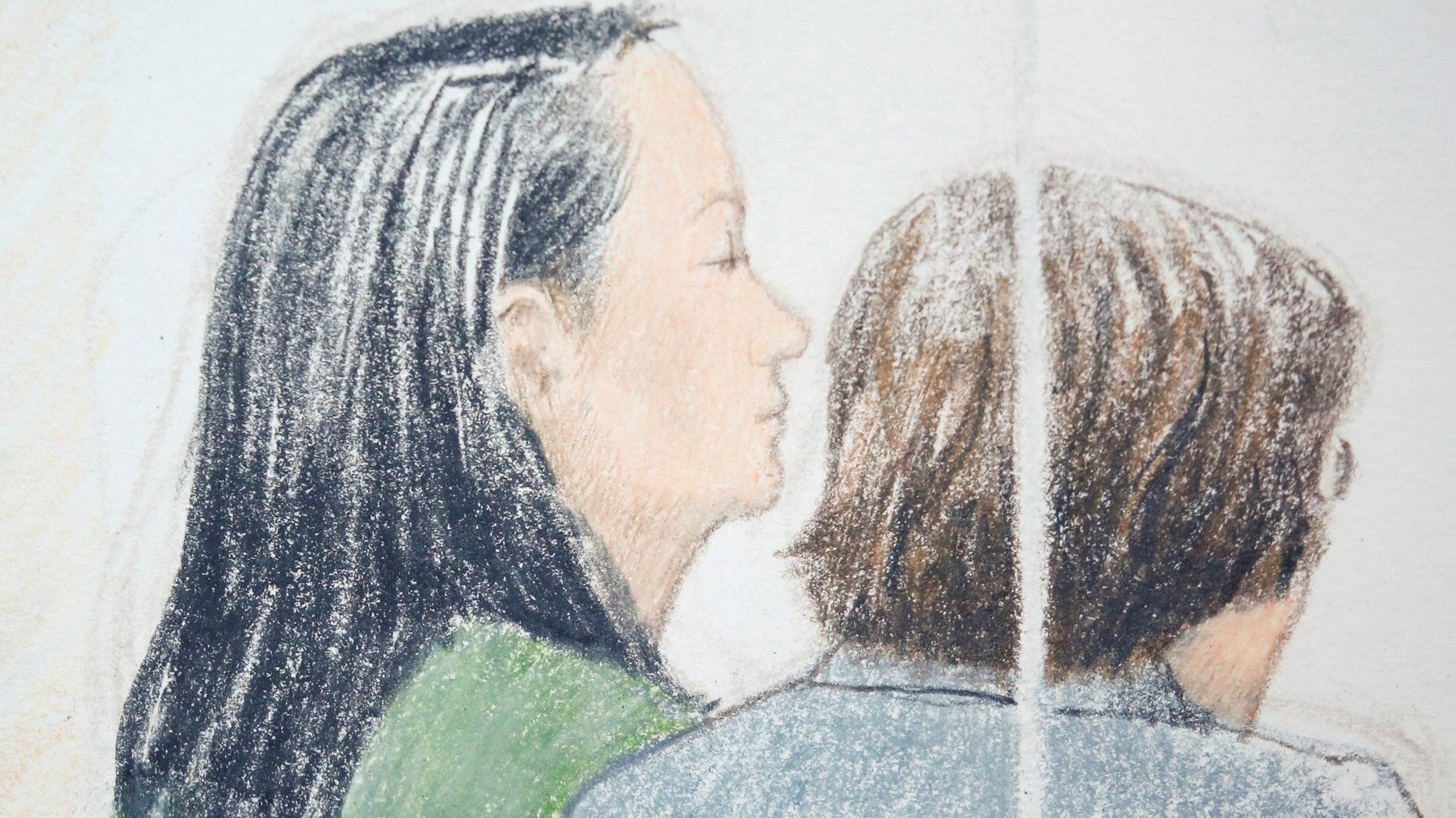Huawei CFO’s bail was set at $7.5 million and she will pay for her own surveillance
Huawei’s CFO Meng Wanzhou, arrested in Canada on Dec. 1 at the request of the US on suspicion of violating sanctions on Iran, was granted bail of C$10 million ($7.5 million) in a Vancouver court today (Dec. 11).


Huawei’s CFO Meng Wanzhou, arrested in Canada on Dec. 1 at the request of the US on suspicion of violating sanctions on Iran, was granted bail of C$10 million ($7.5 million) in a Vancouver court today (Dec. 11).
During a bail application hearing that began Friday (Dec. 7), Meng had offered to wear an ankle bracelet and pay for her own 24-hour monitoring through private surveillance firms. The judge initially appeared skeptical of the offer, but later ruled that he was satisfied Meng was not a flight risk after assurances from friends and local contacts.
He outlined 15 conditions she has to meet. Apart from 24-hour monitoring that she has to pay for, she must also adhere to an 11pm-to-6am curfew in her Vancouver home, and surrender her multiple passports. She also has to pay roughly US$5 million in cash. Meng’s next hearing is Feb. 6.
Huawei confirmed bail had been set, and said it complies with all laws, including export controls and sanctions.
Meng is the daughter of Huawei founder Ren Zhengfei, who developed the company into the world’s biggest provider of telecom equipment and second-biggest seller of smartphones. Meng was elevated to vice chair earlier this year as Huawei’s troubles with the US deepened, even though her father had said in the past that no child of his had the “vision, character, or ambition” to lead the company.
Huawei has a long, troubled history with US companies and authorities, including accusations of intellectual-property theft (pdf) and warnings that its equipment poses potential national security risks. Huawei has disputed these allegations and said its equipment is safe to use—it has even called for a “thorough government investigation” (pdf) into its business.
This year, the Trump administration launched an investigation into how the Chinese government supports its tech firms, and has imposed tariffs on hundreds of billions in Chinese goods. And as the world prepares for the widespread adoption of 5G telecom networks—which would make internet-connected devices like self-driving cars a widespread reality—concern about keeping telecom infrastructure safe from intrusion has increased. To that end, the US has stepped up efforts to restrict the use of Huawei equipment in the US, and has urged its allies (paywall) to do the same. Countries like Australia, New Zealand, and Japan have taken such steps.
Meng’s arrest came on the same day as Donald Trump’s meeting with Chinese president Xi Jinping in an effort to resolve the two countries’ trade tensions, though Trump said he had no knowledge the arrest was coming. Some commentators have criticized the US for politicizing the use of law enforcement, describing the timing of the arrest as a China-style tactic. The arrest of Meng relates to the dealings between a Huawei-linked firm called Skycom and Iran, and whether Meng misrepresented relations between the two firms.
“It is entirely appropriate to hold Huawei accountable for its illegal activities, including the apparent sanctions violations,” Elsa Kania, a fellow researching Chinese military innovation at the Center for New American Security in Washington DC, told Quartz. She added, “If this case were to become unduly politicized pursuant to the trade war, there would be a risk that reactions to real security concerns could be dismissed as disingenuous—or as attempts by the U.S. government to undermine Huawei as a company.”
The Dec. 1 meeting between Xi and Trump resulted in a commitment to negotiate a deal to resolve trade tensions by March 1. As Meng’s bail proceedings were underway, Trump told Reuters in an interview that he would intervene in the Justice Department’s case if he thought it could help secure the “largest trade deal ever made” with China.